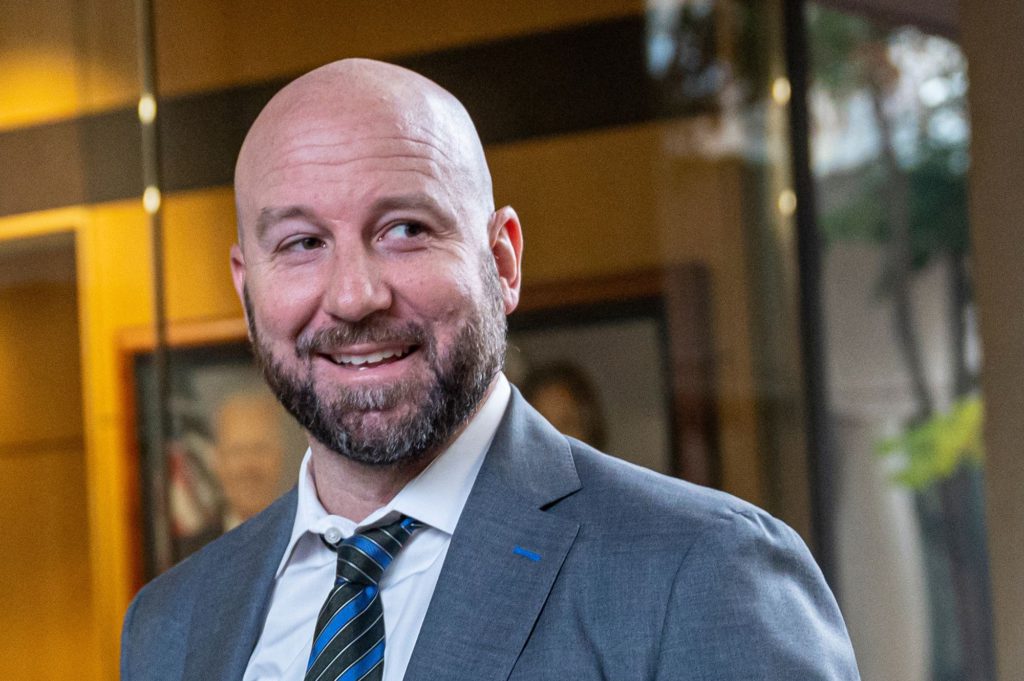Meta Platforms Inc.’s Chief Technology Officer Andrew Bosworth pointed to the innovative failures at the world’s biggest social media company to make the case that it should be permitted to buy a virtual reality startup.
(Bloomberg) — Meta Platforms Inc.’s Chief Technology Officer Andrew Bosworth pointed to the innovative failures at the world’s biggest social media company to make the case that it should be permitted to buy a virtual reality startup.
Testifying in federal court in San Jose, California, Monday, Bosworth is a witness for Meta in its effort to beat back regulators seeking to block the company from acquiring Within, the maker of Supernatural — a popular VR fitness app.
The Federal Trade Commission claims Meta’s plan to buy the competitor will give it an unfair advantage in the burgeoning VR market. The argument is an early test for FTC Chair Lina Khan and her more aggressive stance to antitrust enforcement.
To counter the FTC’s allegation that Facebook parent Meta abandoned its own plans to develop a virtual reality fitness app in favor of buying Within, Bosworth said the target company is sophisticated, unique and impossible to reproduce — even with the money that Meta has.
“All the resources in the world don’t buy you success,” Bosworth said. “That’s particularly true for digital interactive content.”
He pointed to applications such as Spaces and Venues — apps designed to get users to interact socially with friends in virtual reality — that failed. Meta has invested heavily in and promoted Horizon Worlds, a successor to Venues, he said. “It’s still not as nearly as successful as we’d hoped it’d be.”
US District Judge Edward Davila pressed Bosworth on his claim that smaller competitors can outmaneuver a company of Meta’s size by being better at allocating its resources. The critical question, Bosworth said, is “Does the thing you create have a soul?” Simply cloning an app like Supernatural is a recipe for failure, he said.
“There’s an art to them,” Bosworth explained, adding that Within has captured an elusive element that resonates with large parts of the population. “You can’t just throw money at that,” he said. “It’s best to build around them.”
The FTC sued Meta in July over the deal, alleging the company was seeking to create a monopoly in virtual reality much in the same way Facebook bought up Instagram and WhatsApp to extend its dominance in social networking. During the Trump administration, the agency sued the company seeking to unwind those deals retroactively. That case is pending.
The Within suit represents the first time the FTC has preemptively challenged a deal by the social media giant, which has bought more than 100 smaller companies over the past decade. Tech companies and investors are closely watching the suit amid concerns the case may make startup acquisitions more difficult.
In court Monday, Bosworth also explained Meta’s broader VR vision. The company is still subsidizing consumers and app developers, he said, and continues to lose money on headsets. But the acquisition of Within would help VR, and Meta, take a step closer to sustainability, he said. “We are working toward a distant point where we’ve turned the corner on this and it is a money-maker.”
Davila has said he will issue a decision by the end of the year on whether to block Meta’s acquisition while the FTC conducts a lengthier, administrative proceeding on the deal in 2023. Bosworth testified that the VR world is moving too quickly for Meta to fight a longer legal fight. Competitors are working away at fitness apps while “we’re doing something else with our time,” he said, referring to the court proceeding he was testifying at.
“If this deal doesn’t close in a timely matter, we’ll probably just walk away,” he said.
–With assistance from Leah Nylen.
More stories like this are available on bloomberg.com
©2022 Bloomberg L.P.











